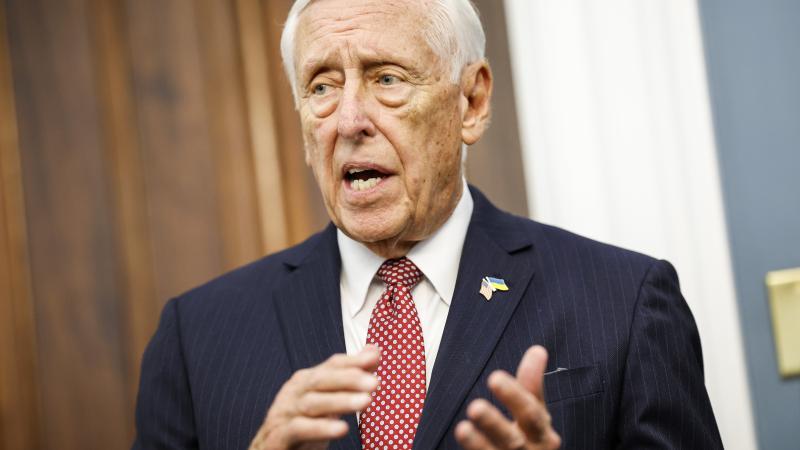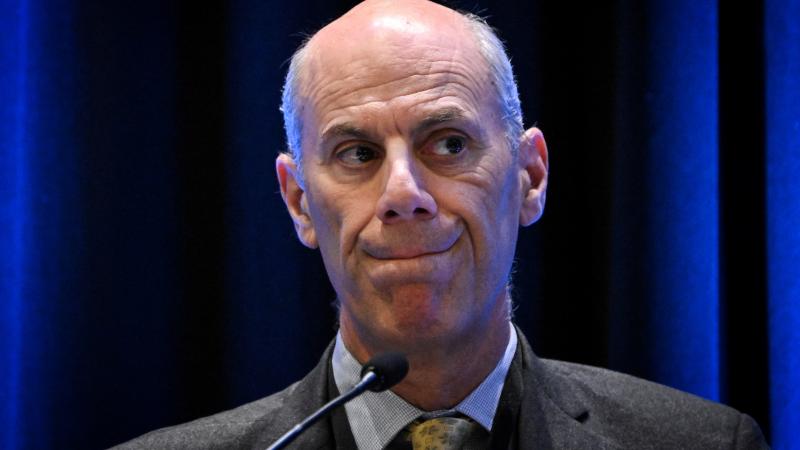Trump subjugates old guard Senate, elevates MAGA House supporters in strategic reordering
While clearly favoring the House plan on the budget, Trump also steamrolled through hesitant senators to push through even his most contentious Cabinet nominees, some of whom maintained high-profile policy disagreements with Senate lawmakers.
President Donald Trump has turned Congress on its head in first month in office, seemingly bringing the Senate to heel while working closely with the lower chamber to accomplish his policy goals. Formerly a bastion of anti-Trump Republicans, the upper chamber has largely been cleared of major detractors, save for a few die-hard institutionalists, and its remaining members either support the MAGA movement or have declined to break with the president.
The narrowly divided House, meanwhile, seems to enjoy Trump’s favor and greater attention, largely due to its closer alignment with his goals, but also due to the narrow and often fractious majority that makes passing legislation there potentially more difficult. Though in his first term Trump was disinclined to weigh in on parliamentary issues, he has thus far taken an active approach to shaping a planned budget package through which he hopes to codify many of his executive orders via reconciliation.
While clearly favoring the House plan on the budget, Trump also steamrolled through hesitant senators to push through even his most contentious Cabinet nominees, some of whom maintained high-profile policy disagreements with Senate lawmakers. The shifting dynamics of both chambers seems to have served to put the House above the Senate, a development compounded by the upper chamber’s leadership turnover that has rendered House Speaker Mike Johnson the senior chamber leader.
Anti-Trump Senate GOP has folded
During his first term, many of Trump’s legislative initiatives were thwarted by old-school Republicans, such as Sen. John McCain, R-Ariz., who maintained personal and political feuds with him. Most often, these came from the neoconservative wing of the party that opposed his attempts to roll back American intervention abroad.
Then-Sens. Mitt Romney, Utah; Ben Sasse, Neb.; Jeff Flake, Ariz.; and Richard Burr, N.C.; were among the most frequent dissidents. But all of them have since left the chamber, leaving Sens. Mitch McConnell, Ky.; Susan Collins, Maine; and Lisa Murkowski, Alaska; as the most vocal and frequent opponents of Trump within the chamber. The current 53-47 majority, however, affords Trump the ability to ignore their objections to his plans and push them through using Vice President JD Vance as a tie-breaking vote.
Trump still has critics within the Republican conference
The media expended considerable time and resources building a narrative around Senate GOP opposition to Trump’s Cabinet picks, but with the exception of Matt Gaetz for attorney general, all of his unconventional choices cleared the chamber. Tulsi Gabbard is now the director of national intelligence while Robert F. Kennedy, Jr., has become the secretary of Health and Human Services. Kash Patel secured confirmation as FBI director on Thursday.
To be sure, Trump still has critics within the Republican conference and Murkowski recently urged her colleagues to intervene in his efforts to overhaul the federal government, asserting in a town hall phone call that "[i]f the president, for instance, should should seek to withhold federal funding that has already been authorized and appropriated, that violates the Budget Act, it violates the Impoundment Act and it cannot be allowed to stand.”
“And so, if we in Congress allow that, we effectively cede some of our authority, and so, your question as to, what do we do about it? We have to stand up," she said, according to CBS News. "Now, the 'we' has to be more than just me. And this is where it becomes more of a challenge, but it requires speaking out. It requires saying, 'That violates the law. That violates the authorities of the executive.’”
Thus far, however, few have heeded her calls. Boding particularly poorly for Murkowski’s efforts, however, is McConnell’s announcement that he will not seek reelection in 2026, signaling the exit of one of the senior-most lawmakers willing to break with Trump.
One bill or two?
Trump, this week, expressly backed the House Republican plan of passing a single budget package with both his promised tax cuts and border funding in a single bill. He further criticized the Senate plan of splitting the provisions into separate legislation and expressly called out Sen. Lindsey Graham’s version of the plan for leaving his goals unfulfilled.
"The House and Senate are doing a SPECTACULAR job of working together as one unified, and unbeatable, TEAM, however, unlike the Lindsey Graham version of the very important Legislation currently being discussed, the House Resolution implements my FULL America First Agenda, EVERYTHING, not just parts of it!" Trump said.
The one vs. two bill debate has been a fixture of congressional reporting since before Trump formally returned to office, but with Johnson facing pressure from fiscal hawks within the Republican conference and the narrow majority that cannot survive even a handful of defections, securing passage in that chamber appears the more crucial hurdle.
The House currently has 218 Republicans, 215 Democrats, and two vacant seats. Republicans currently hold one of the narrowest majorities possible in that chamber and the conference has previously seen its members vote with Democrats in defiance of their leadership. Such was the case in late 2023 when a handful of Republicans were able to oust then-Speaker Kevin McCarthy.
Trump further appeared poised to placate budget hawks in the lower chamber by touting his support for a balanced budget this year, asserting that the projected revenues from tariffs could help to bring the government into the black.
“BALANCE BUDGET NOW??? LETS GIVE IT A SHOT. LOTS OF MONEY COMING IN FROM TARIFFS. DO IT! DJT,” he posted.
It appears that Trump isn’t seeking to alienate the Senate, but merely to sideline its prior dissenters and has made sure to keep Senate Majority Leader John Thune, R-S.D., in the loop and on-message.
“Great Job on Fox yesterday by Senate Majority Leader John Thune in explaining how far Republican Senators have come, in working with Speaker Johnson and the Republican House, on TAX CUTS, THE BORDER, and some of the most important legislation that our Country has ever considered,” Trump said Thursday. “Tremendous progress has been made and Republicans are UNITED like never before. MAKE AMERICA GREAT AGAIN!”













